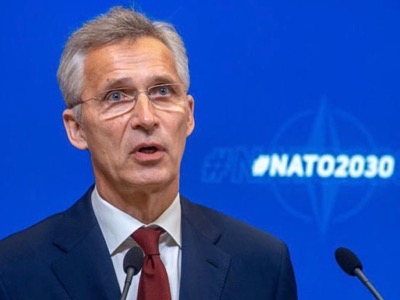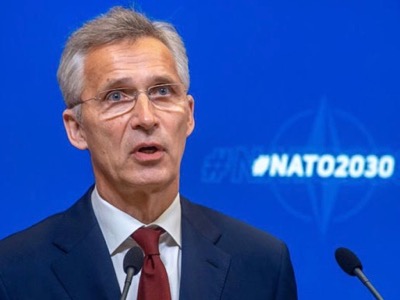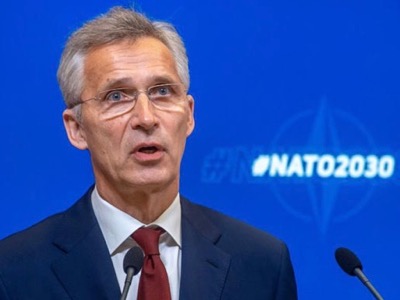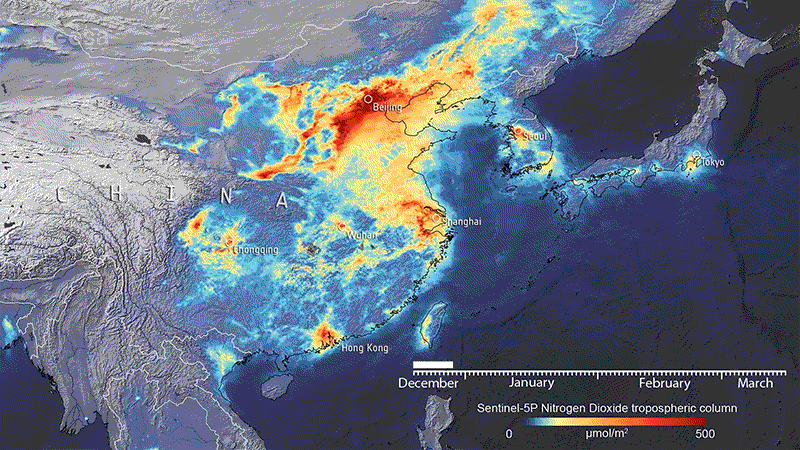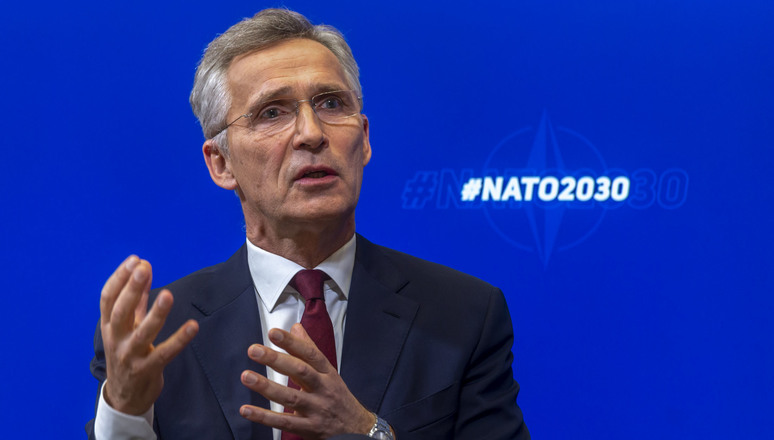
Die
Kunst des Krieges
Die NATO
an der Spitze der italienischen Außenpolitik
Manlio
Dinucci
Die
NATO-Verteidigungsminister (Lorenzo Guerini, Pd als Vertreter Italiens) kamen
am 17./18. Juni per Videokonferenz zusammen und trafen eine Reihe von
"Entscheidungen zur Stärkung der Abschreckung durch das Bündnis".
Doch in Italien spricht niemand darüber, weder die Medien (einschließlich der
sozialen Medien) noch die politische Welt, wo über all dem ein völliges
Schweigen aller Parteien herrscht. Doch diese Entscheidungen, die im
Wesentlichen von Washington diktiert und von Minister Guerini für Italien
unterzeichnet wurden, zeichnen nicht nur die Leitlinien unserer Militärpolitik,
sondern auch unserer Außenpolitik nach.
Zunächst
einmal - so kündigt Generalsekretär Jens
Stoltenberg an - "bereitet sich die NATO auf eine mögliche zweite
Welle von Covid-19 vor", gegen die die NATO bereits über eine halbe
Million Soldaten in Europa mobilisiert hat. Stoltenberg klärt nicht, wie die
NATO eine mögliche zweite Viruspandemie mit einer neuen Abriegelung vorhersagen
kann.
Über
einen Punkt ist er sich jedoch im Klaren: Dies "bedeutet nicht, dass
andere Herausforderungen verschwunden sind". Das Hauptproblem - so
betonten die Verteidigungsminister - rührt von Russlands
"destabilisierendem und gefährlichem Verhalten" her, insbesondere von
seiner "unverantwortlichen nuklearen Rhetorik, die darauf abzielt, die
NATO-Verbündeten einzuschüchtern und zu bedrohen".
Auf
diese Weise kehren sie die Realität um und löschen die Tatsache aus, dass es
die NATO war, die nach dem Ende des Kalten Krieges ihre nuklearen Streitkräfte
und Stützpunkte in der Nähe Russlands, insbesondere der Vereinigten Staaten,
ausgebaut hat. Eine Strategie, die darauf abzielte, in Europa wachsende
Spannungen mit Russland zu erzeugen, wurde methodisch unter Washingtoner Führung
umgesetzt.
Die
Verteidigungsminister trafen sich in der Nuklearen Planungsgruppe unter dem
Vorsitz der Vereinigten Staaten, um über neue militärische Maßnahmen gegen
Russland zu entscheiden.
Es ist
nicht bekannt, welche Beschlüsse in Nuklearfragen Minister Guerini im Namen
Italiens unterzeichnet hat. Es ist jedoch klar, dass Italien mit seiner
Teilnahme an der Gruppe und der Unterbringung von US-Atomwaffen (die auch von
unserer Luftwaffe eingesetzt werden können) gegen den Atomwaffensperrvertrag
verstößt und den UN-Vertrag über das Verbot von Atomwaffen ablehnt.
Stoltenberg
sagte lediglich: "Heute haben wir weitere Schritte beschlossen, um die
nukleare Abschreckung der NATO in Europa sicher und effizient zu halten. Zu
diesen Schritten gehört sicherlich die nächste Ankunft der neuen US-Atombomben
B61-12 auch in Italien.
Die
Verteidigungsminister sprachen von einer weiteren wachsenden
"Herausforderung", nämlich der, dass China zum ersten Mal "ganz
oben auf der Tagesordnung der NATO steht".
Ø China ist ein Handelspartner
vieler Verbündeter, aber gleichzeitig "investiert es massiv in neue
Raketensysteme, die alle NATO-Länder erreichen können", so Stoltenberg.
Ø Damit beginnt die NATO, China
als militärische Bedrohung darzustellen.
Gleichzeitig
stellt sie chinesische Investitionen in den Ländern des Bündnisses als
gefährlich dar. Ausgehend von dieser Prämisse aktualisierten die
Verteidigungsminister die Richtlinien zur "nationalen
Widerstandsfähigkeit", die verhindern sollen, dass Energie, Verkehr und Telekommunikation,
insbesondere 5G, in "ausländischem Besitz und unter ausländischer
Kontrolle" (genauer: "Chinesischer Besitz und Kontrolle")
landen.
Dies
sind die Beschlüsse, die von Italien auf dem NATO-Verteidigungsministertreffen
unterzeichnet wurden. Sie binden unser Land an eine Strategie wachsender
Feindseligkeiten, insbesondere gegenüber Russland und China, setzen uns immer
ernsteren Risiken aus und machen unsere Vereinbarungen, auf denen dieselben
Wirtschaftsabkommen beruhen, instabil.
Es
handelt sich um eine langfristige Strategie, wie das am 8. Juni von
Generalsekretär Stoltenberg lancierte Projekt "NATO 2030" zur "militärischen
und politischen Stärkung des Bündnisses" zeigt, bei dem Länder wie
Australien (das bereits zur Tagung der Verteidigungsminister eingeladen wurde),
Neuseeland, Japan und andere Asiaten in eine eindeutig antichinesische Funktion
einbezogen werden.
Für das
Projekt Great Global (Born) NATO 2030 wurde eine Gruppe von zehn Beratern
gebildet, darunter Prof. Marta Dassù,
ehemalige außenpolitische Beraterin in der Regierung
D'Alema vor und während des NATO-Krieges gegen Jugoslawien, an dem Italien
1999 mit seinen Stützpunkten und Bombern unter amerikanischem Kommando
teilnahm.
il manifesto,
23. Juni 2020
Übersetzung:
K.R.
